Table of contents
- Why Now is the Ideal Time for a Cement Manufacturing Business in India
- Essential Raw Materials for Your Cement Manufacturing Business
- Detailed Startup Cost Breakdown for a Cement Manufacturing Business
- 1. Market Research and Feasibility Study (Crucial First Step)
- 2. Legal and Regulatory Compliance (Navigating the Bureaucracy)
- 3. Land Acquisition and Infrastructure (Laying the Foundation)
- 4. Machinery and Technology (Investing in Efficiency)
- 5. Raw Material Sourcing and Management (Securing the Supply Chain)
- 6. Production Process and Quality Control (Ensuring Excellence)
- 7. Marketing and Distribution (Reaching Your Customers)
- 8. Financial Planning and Management (Managing the Money)
- Need Expert Guidance?
- Conclusion
- Frequently Asked Questions (FAQs)
Are you looking to tap into the booming Indian construction sector? Learning how to start a cement manufacturing business could be your gateway to a lucrative venture. Cement, a fundamental building material, sees consistent demand, making it a potentially profitable industry. This guide provides a step-by-step roadmap to help you navigate the complexities and establish a successful cement manufacturing unit.
Why Now is the Ideal Time for a Cement Manufacturing Business in India
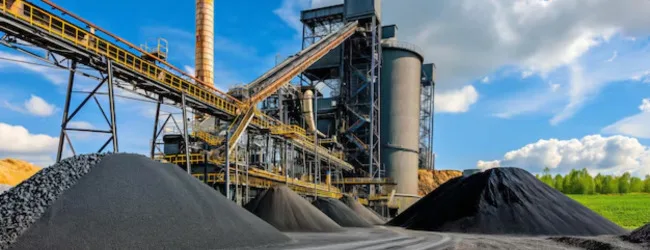
- Infrastructure Boom:
- The Indian government’s focus on infrastructure development, including highways, railways, and urban development projects, is driving significant demand for cement.
- Initiatives like “Bharatmala Pariyojana” and “Smart Cities Mission” are major contributors.
- Housing Demand:
- Rapid urbanization and increasing disposable incomes are fueling the demand for residential and commercial construction.
- “Housing for all” schemes also drastically increase demand.
- Growing Economy:
- India’s expanding economy and rising GDP create a favorable environment for the construction sector.
- Government Support:
- The government offers various incentives and subsidies to promote industrial growth, including cement manufacturing.
- Increased Rural Construction:
- Rural development projects are also increasing cement demand.
- Example: The ambitious infrastructure projects planned by the Indian government, coupled with the rising demand for affordable housing, present a substantial growth opportunity for cement manufacturers.
Essential Raw Materials for Your Cement Manufacturing Business
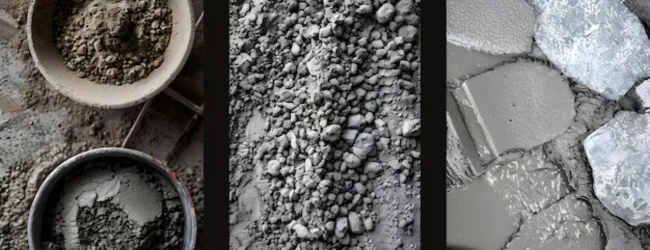
- Limestone:
- The primary raw material, constituting about 60-65% of cement.
- High-quality limestone deposits are essential for producing strong and durable cement.
- Clay:
- Used as a source of silica and alumina.
- The quality of clay affects the strength and setting properties of cement.
- Gypsum:
- Added to control the setting time of cement.
- Proper gypsum content is crucial for workability.
- Fly Ash/Blast Furnace Slag:
- Industrial by-products used as supplementary cementitious materials.
- These materials can improve cement properties and reduce environmental impact.
- Note: Sourcing reliable and consistent supplies of these raw materials is vital for uninterrupted production.
- Water:
- Used in the manufacturing process, and for concrete mixing.
- Fuel:
- Coal, or other fuels that are used in the kiln.
Detailed Startup Cost Breakdown for a Cement Manufacturing Business
- Land Acquisition:
- Cost varies depending on location and size.
- Expect a significant portion of the initial investment.
- Example: Land in industrial zones near limestone quarries can be expensive.
- Machinery and Equipment:
- Crushers, kilns, grinding mills, packing machines, etc.
- High-quality machinery ensures efficiency and longevity.
- Cost can range from several crores to tens of crores INR.
- Factory Construction:
- Building the factory, storage facilities, and administrative offices.
- Infrastructure development, including power and water supply.
- Raw Material Inventory:
- Initial stock of limestone, clay, gypsum, etc.
- Working capital for ongoing raw material procurement.
- Licenses and Permits:
- Fees for business registration, environmental clearances, and other regulatory approvals.
- Working Capital:
- Funds for operating expenses, including salaries, utilities, and marketing.
- This is a very important part of the start up cost.
- Quality Control Laboratory:
- Testing equipment, and lab setup costs.
- Transportation and Logistics:
- Vehicles, and other transport related costs.
- Estimated Breakdown:
- Land: 20-30%
- Machinery: 30-40%
- Construction: 15-20%
- Working Capital & Raw Materials: 10-15%
- Licenses and Miscellaneous: 5%
- Important: These are estimates, and the actual costs can vary depending on the scale and location of the project. A detailed feasibility study is essential.
ALSO READ | Earn Crores with 10 High-Demand Manufacturing Business Ideas Under ₹30 Lakh
1. Market Research and Feasibility Study (Crucial First Step)
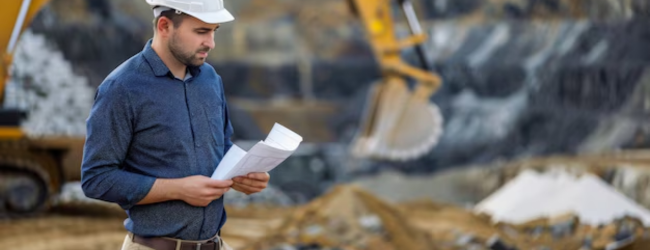
- Analyze Market Demand:
- Understand the regional demand for different types of cement.
- Identify key consumers: construction companies, infrastructure projects, and individual builders.
- Consider the impact of government infrastructure initiatives like “Pradhan Mantri Awas Yojana” which boost housing demand, directly impacting cement consumption.
- Competitive Landscape:
- Identify existing cement manufacturers in your target region.
- Analyze their market share, pricing strategies, and distribution networks.
- Determine your competitive advantage (e.g., specialized cement, lower cost, strategic location).
- Feasibility Study:
- Estimate the initial investment required, including land, machinery, and raw materials.
- Project operating costs, revenue, and profitability.
- Assess the availability of raw materials (limestone, clay, gypsum).
- Evaluate the environmental impact and regulatory requirements.
- Example: In India, many regional players thrive by offering customized cement mixes for local construction needs, showcasing the importance of market research.
2. Legal and Regulatory Compliance (Navigating the Bureaucracy)
- Business Registration:
- Choose a suitable business structure (sole proprietorship, partnership, or private limited company).
- Register your business with the Registrar of Companies.
- Licenses and Permits:
- Obtain necessary licenses from local authorities, including factory license and environmental clearances.
- Secure permits for land acquisition and raw material sourcing.
- Comply with pollution control board regulations.
- Note: The process can be time-consuming; ensure you have a dedicated team or consultant.
- Environmental Clearances:
- Cement manufacturing can have environmental impacts; obtain clearances from the State Pollution Control Board.
- Implement pollution control measures to minimize emissions and waste.
3. Land Acquisition and Infrastructure (Laying the Foundation)
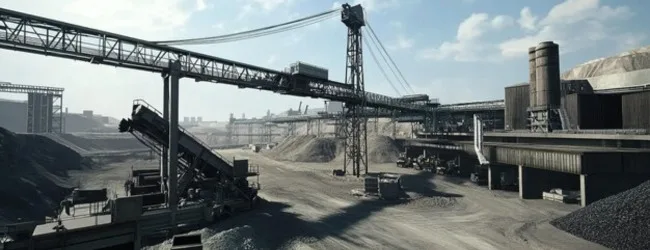
- Land Selection:
- Choose a location with proximity to raw material sources (limestone quarries).
- Ensure adequate transportation infrastructure (roads, railways).
- Consider the availability of water and power supply.
- Important: Land cost significantly impacts overall investment.
- Infrastructure Development:
- Construct factory buildings, storage facilities, and administrative offices.
- Install power supply and water treatment systems.
- Develop transportation facilities for raw material and finished product movement.
💡 Pro Tip: If you want to start a business but have too many doubts, connect with a business expert from Boss Wallah for guidance – https://bw1.in/1116
4. Machinery and Technology (Investing in Efficiency)
- Essential Machinery:
- Crushers, kilns, grinding mills, and packing machines.
- Material handling equipment (conveyors, elevators).
- Quality control laboratory equipment.
- Technology Selection:
- Choose energy-efficient and environmentally friendly technologies.
- Consider automation to improve productivity and reduce labor costs.
- Tip: Partner with reputable machinery suppliers for installation and maintenance support.
- Quality Control:
- Implementing strict quality control procedures is paramount for building a reputation for reliable cement.
5. Raw Material Sourcing and Management (Securing the Supply Chain)
- Limestone:
- Establish long-term contracts with limestone quarries.
- Ensure consistent supply and quality of limestone.
- Other Raw Materials:
- Source clay, gypsum, and other additives from reliable suppliers.
- Implement inventory management systems to minimize stockouts.
- Transportation:
- Efficient transportation of raw materials to the factory is crucial.
- Optimize logistics to reduce costs and ensure timely delivery.
6. Production Process and Quality Control (Ensuring Excellence)
- Manufacturing Process:
- Understand the clinkerization process and cement grinding.
- Optimize the production process for efficiency and quality.
- Quality Control Measures:
- Implement rigorous quality control checks at every stage of production.
- Conduct regular laboratory tests to ensure compliance with standards.
- Fact: Cement quality is critical for structural integrity; invest in robust quality control systems.
7. Marketing and Distribution (Reaching Your Customers)
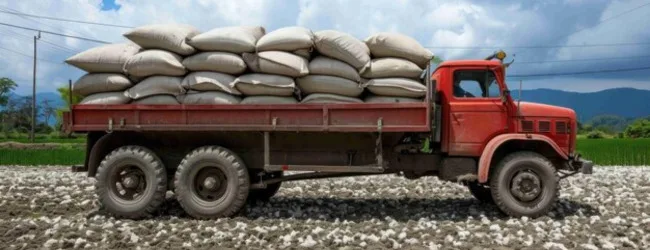
- Marketing Strategy:
- Develop a brand identity and marketing plan.
- Target construction companies, contractors, and retail outlets.
- Utilize digital marketing and traditional advertising.
- Distribution Network:
- Establish a network of distributors and dealers.
- Ensure efficient logistics and delivery systems.
- Example: Many Indian cement companies maintain strong relationships with local hardware stores, which are key distribution points.
8. Financial Planning and Management (Managing the Money)
- Funding Sources:
- Explore bank loans, government schemes, and private equity.
- Prepare a detailed financial plan and business proposal.
- Cost Management:
- Implement cost control measures to optimize profitability.
- Monitor expenses and revenue closely.
- Financial Reporting:
- Maintain accurate financial records and prepare regular reports.
Need Expert Guidance?
Starting a business can be challenging, but you don’t have to do it alone! At Boss Wallah, our 2,000+ business experts are ready to provide valuable insights and guidance. Whether you need help with marketing, finance, sourcing, or any other area of any business, our business experts are here to help you succeed- https://bw1.in/1116
Confused about Which Business to Start?
Want to start your own business but unsure which one to choose? Explore Boss Wallah, where you’ll find 500+ courses by successful business owners, featuring practical, step-by-step guides on starting and growing various businesses.
Find your perfect business idea today – https://bw1.in/1111
Conclusion
Starting a cement manufacturing business requires meticulous planning, substantial investment, and adherence to regulatory requirements. However, with the right approach and a strong commitment to quality, you can establish a successful and profitable venture in the thriving Indian construction sector. By following this detailed guide, you can navigate the complexities and build a solid foundation for your cement manufacturing business.
Frequently Asked Questions (FAQs)
- What is the minimum investment required to start a cement manufacturing business?
- The investment varies significantly depending on the scale of operation, ranging from several crores to hundreds of crores INR.
- What are the key raw materials required for cement manufacturing?
- Limestone, clay, gypsum, and other additives.
- What are the necessary licenses and permits?
- Factory license, environmental clearances, and permits from local authorities.
- How can I ensure the quality of my cement?
- Implement rigorous quality control measures at every stage of production and conduct regular laboratory tests.
- What are the potential environmental impacts of cement manufacturing?
- Air pollution, water pollution, and land degradation.
- How can I market my cement products?
- Target construction companies, contractors, and retail outlets through digital and traditional marketing.
- What are the key factors for success in the cement industry?
- Quality, cost-effectiveness, efficient distribution, and strong customer relationships.
- Where can I find reliable machinery suppliers?
- Industry trade shows, online directories, and referrals from existing cement manufacturers.


